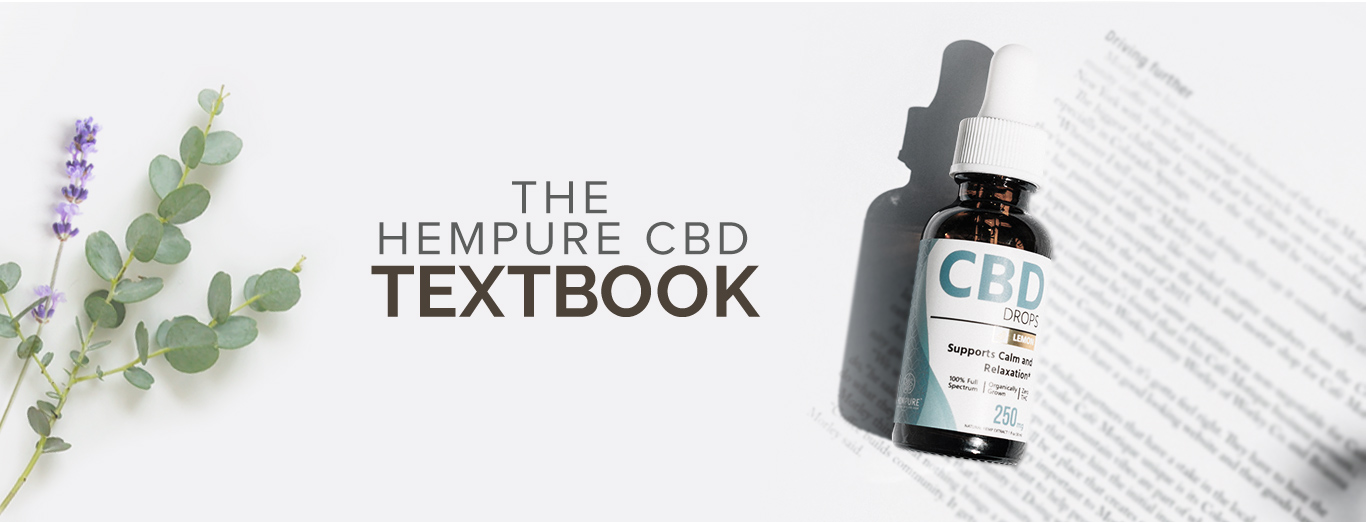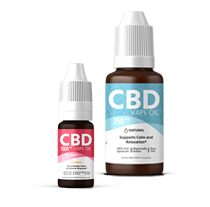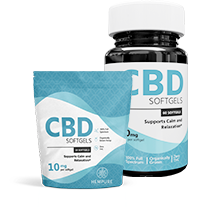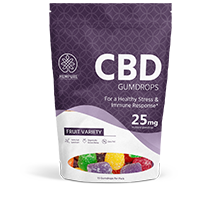Chapter
FOOD AND ACTIVITIES
THAT BOOST YOUR
ENDOCANNABINOID SYSTEM
While CBD remains the most direct way to heighten the endocannabinoid system, it is not the only option for supplementing your ECS. Many factors influence the ECS, from the foods we eat to the activities we do. Subsequently, the balance of our ECS, much like the rest of bodily health, is as much a result of our way of being as an influence on it.
STIMULATING THE ENDOCANNABINOID SYSTEM
The ECS can be enhanced and encouraged when it is not functioning optimally, resulting in better overall health.
As covered, the endocannabinoid system is important to all levels of health, from life-sustaining to life-enhancing. An unbalanced endocannabinoid system can lead to many diseases and ailments. By boosting or toning the ECS, we are able to maintain a better health balance in our body.
Now that you’ve read about the numerous ways that the endocannabinoid system regulates homeostasis and improves health, here are a few ways you can tone and foster your endocannabinoid system:
RUNNING & PHYSICAL EXERCISE
Have you ever experienced a “runner’s high?” You know that feeling you get in the middle of a long run where you body becomes light and free? That’s your endocannabinoid system at work.
Our old friend anandamide, which you’ll recall from Chapter 2 as one of the most prevalent endocannabinoids produced in your body, is also responsible for that sensation.
For many years scientists believed the pleasant experience that came on as a result of running was caused by endorphins.
It turns out this is not the case.
Named after the Sanskrit word for “bliss,” anandamide produces many of the joyful feelings you experience. Scientists believe anandamide creates the blissful feeling associated with runner’s high, meditation, yoga, acupuncture, and unstructured play time.


AN  AN
AN  DA
DA  Mide
Mide
One of the most prevalent endocannabinoids produced in your body. It produces many of the joyful feelings that you experience associated with runner’s high and meditation.
CHOCOLATE
Anandamide is also present in chocolate.1 The great feelings people get when eating chocolate is not just from a sugar rush, but also from enjoying the supplementation of our body’s own bliss molecule.
Dark chocolate also contains a high level of flavonoids, which help the body retain more anandamide by inhibiting the enzyme that breaks it down.2 Fruits and vegetables are also good sources of flavonoids.
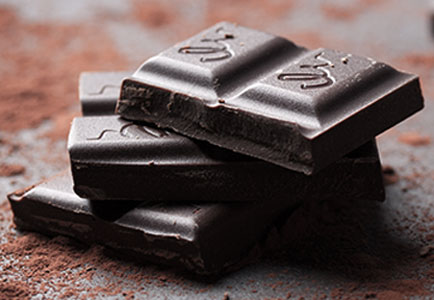
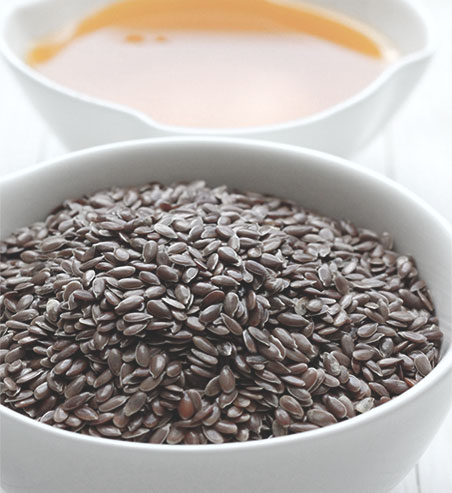
ESSENTIAL FATTY ACIDS
Good Omega-3 and Omega-6 fatty acids contain a large amount of the precursor materials for building endocannabinoids. Your body needs them in order to ramp up production of cannabinoids. You can find them in meat, poultry, walnuts, flax, and certain oils like sunflower oil.
Anandamide and 2-AG, the most prevalent endocannabinoids, are produced by omega-6 fatty acids. Omega-3 fatty acids appear to also be responsible for the creation of endocannabinoids, but their role is not yet fully understood. However, the typical Western diet has an excess of omega-6 acids – which can result in a downregulation of the production of endocannabinoids.3
The best way to ensure proper endocannabinoid production is to balance out your diet with an equal amount of omega-3 fatty acids to the recommended ratio of 4:1 (omega 6: omega 3)4. Good sources of omega-3 include grass-fed beef, walnuts, chia seeds, flax seeds, wild salmon, omega-3 enriched eggs, and sardines.
HERBS
Cannabis is not the only plant shown to contain endocannabinoids. Some of the most popular health supplements available today provide support to the endocannabinoid system.5 Here’s a list of some below:
- TURMERIC
- BLACK PEPPER
- CONEFLOWER
- LIVERWORT
- ECHINACEA
Caryophyllene, a terpene found in cannabis that is shown to act on independently on CB2 receptors, is also abundant in rosemary and hops.
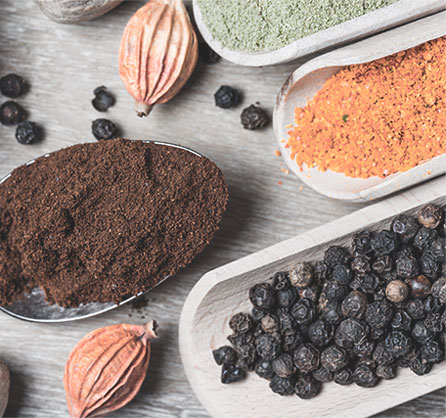
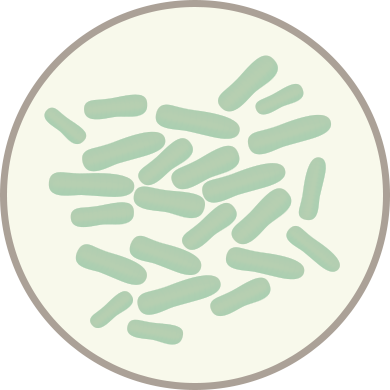
PROBIOTICS
Probiotics alter the functioning of cannabinoid receptors throughout the body.
Ever had an upset stomach and felt like everything in your body wasn’t working quite right? Probiotics seem to alter more than just the functioning of the gut, they may alter the entire endocannabinoid system and have wide ranging effects.
People who were given probiotics showed improvements in the activity of the cannabinoid receptors in their intestines. Along with the intestines, cannabinoid receptors in the brain also showed improved activity after people received probiotics. Mice showed changes in their brains after receiving probiotics as well. When mice had too much cannabinoid activity going on, probiotics brought the activity down to a normal level. When mice were not experiencing enough cannabinoid activity, probiotics increased cannabinoid activity.
intertwined, one affecting the other."
THINGS TO AVOID THAT CAN HARM YOUR ENDOCANNABINOID SYSTEM
While there’s plenty of things you can do to boost your endocannabinoid system, here are a few things you’ll want to avoid to keep it functioning at an optimal level.
FOODS HIGH IN PESTICIDES
To keep your endocannabinoid system in good health, eat organic foods as often as possible.7 Some studies have discovered that CB1 receptors can be inhibited by certain types of pesticides.8
ALCOHOL
Excessive alcohol consumption may lead to a reduction in CB1 receptor sensitivity and an alteration in the number of endocannabinoids present in the body.9 To improve endocannabinoid functioning, it is best to use alcohol in moderation or avoid it.
CHRONIC STRESS
If you want to let your endocannabinoid system flourish, you may want to squeeze a stress ball. Multiple studies indicate that high levels of stress reduce the number of cannabinoids found in the body.
Even though exercise has proven to stimulate the ECS, it only mostly works if you enjoy it. Studies on animal subjects have proven that stressful exercise can still negatively affect the ECS.10 The takeaway is that any activity which is likely to lower stress levels, such as meditation, creative practices, or even structured breathing have a high potential to increase levels of anandamide and stimulate the ECS. Further research into these areas needs to be done, but the evidence continues to suggest this to be the case.

Summary
- CBD is not the only thing that can help to activate your endocannabinoid system.
- Physical activities including running, meditation, yoga and massage can encourage a healthy endocannabinoid system.
- Many foods can also boost the endocannabinoid system including coffee, various herbs, chocolate, and essensial fatty acids.
- You shoud avoid foods high in pesticides, alcohol, and chronic stress. These can all deregulate the endocannabinoid system.
-
10
REFERENCES
- John M. McPortland, Geoffrey W. Guy, Vincenzo Di Marzo, Care and Feeding of The Endocannabinoid System: A Systematic Review of Potential Clinical Interventions that Upregulate the Endocannabinoid System, PLOS One, 2014 Mar, http://journals.plos.org/plosone/article?id=10.1371/journal.pone.0089566#pone.0089566-diTomaso1
- L Thors, M Belghiti, C J Fowler, Inhibition of Fatty Acid Amide Hydrolase by Kaempferol and Related Naturally Occurring Flavonoids, British Journal Of Pharmacology, 2008 Jun, https://www.ncbi.nlm.nih.gov/pmc/articles/PMC2538700/
- Clementine Bousch-Bouju, Sophie Laye, Dietary Omega-6/Omega-3 and Endocannabinoids: Implications for Brain Health and Diseases, IntechOpen, 2016 Feb, https://www.intechopen.com/books/cannabinoids-in-health-and-disease/dietary-omega-6-omega-3-and-endocannabinoids-implications-for-brain-health-and-diseases
- Simopoulos AP, The Importance of The Ratio of Omega-6/Omega-3 Essential Fatty Acids, Biomed Pharmacotherapy, 2002 Oct, https://www.ncbi.nlm.nih.gov/pubmed/12442909
- Jurg Gertsch, Roger Pertwee, Vincenzo Di Marzo, Phytocannabinoids beyond the Cannabis Plant, do they exist?, British Journal of Pharmacology, 2010 Jun, https://www.ncbi.nlm.nih.gov/pmc/articles/PMC2931553/
- John M. McPartland, Geoffrey W. Guy, Vincenzo Di Marzo, Care and Feeding of The Endocannabinoid System: A Systematic Review of Potential Clinical Interventions that Upregulate the Endocannabinoid System, PLOS One, 2014 Mar,http://journals.plos.org/plosone/article?id=10.1371/journal.pone.0089566
- John M. McPartland, Geoffrey W. Guy, Vincenzo Di Marzo, Care and Feeding of The Endocannabinoid System: A Systematic Review of Potential Clinical Interventions that Upregulate the Endocannabinoid System, PLOS One, 2014 Mar,http://journals.plos.org/plosone/article?id=10.1371/journal.pone.0089566
- Gary B.Quistad, Daniel K.Nomura, Susan E.Sparks, Yoffi Segall, John E., Cannabinoid CB1 receptor as a target for chlorpyrifos oxon and other organophosphorus pesticides, Toxicology Letters, 2002 Sep, https://www.sciencedirect.com/science/article/pii/S0378427402002515
- John M. McPartland, Geoffrey W. Guy, Vincenzo Di Marzo, Care and Feeding of The Endocannabinoid System: A Systematic Review of Potential Clinical Interventions that Upregulate the Endocannabinoid System, PLOS One, 2014 Mar,http://journals.plos.org/plosone/article?id=10.1371/journal.pone.0089566
- John M. McPartland, Geoffrey W. Guy, Vincenzo Di Marzo, Care and Feeding of The Endocannabinoid System: A Systematic Review of Potential Clinical Interventions that Upregulate the Endocannabinoid System, PLOS One, 2014 Mar,http://journals.plos.org/plosone/article?id=10.1371/journal.pone.0089566

